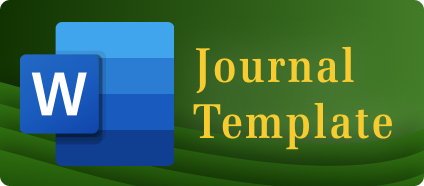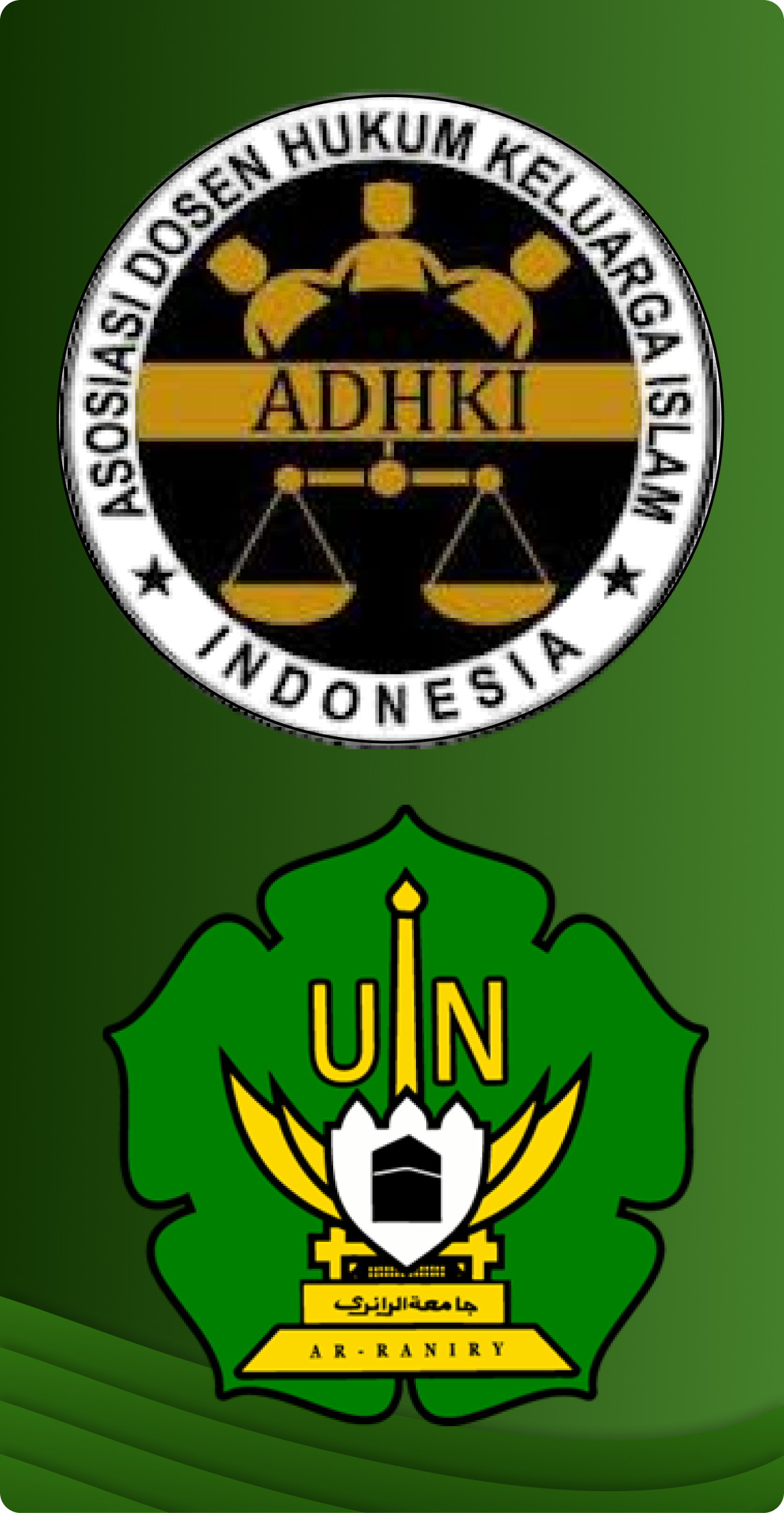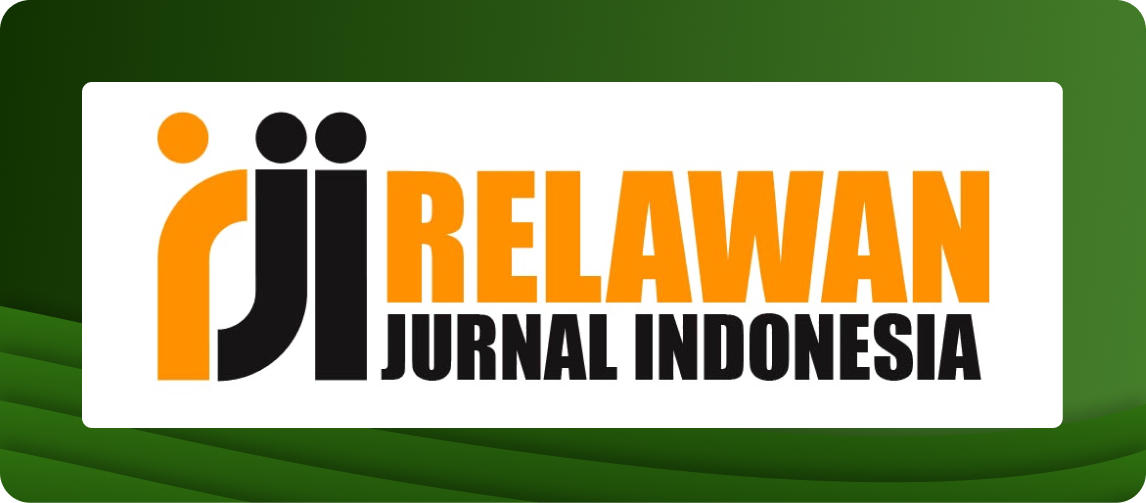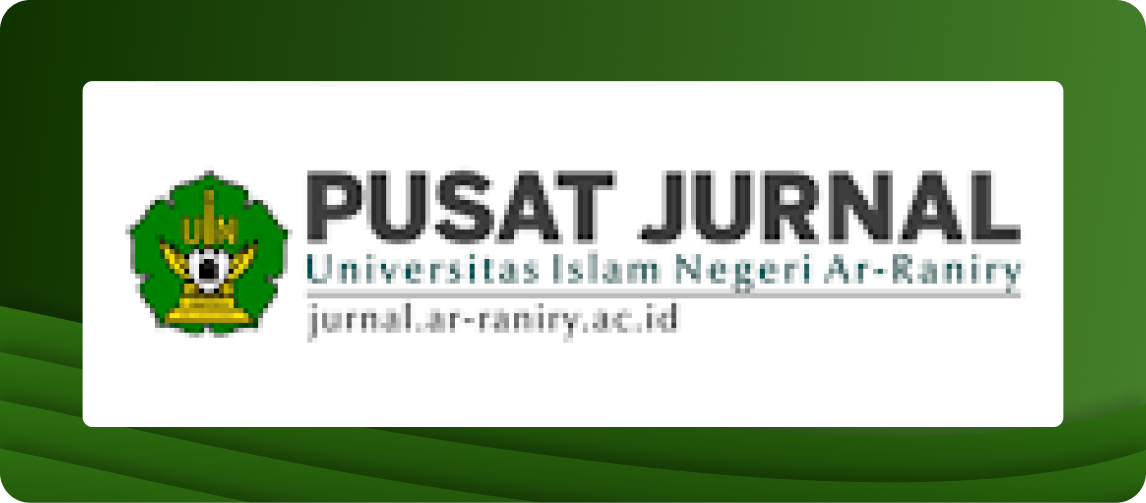Coastal Conservation in Fishing Communities of Malang
Transforming Qur'anic Ecological Values through a Cultural Anthropology Perspective
DOI:
https://doi.org/10.22373/y9dwxw10Keywords:
Coastal conservation, fishing communities, ecological values, Qur'anic principles, cultural anthropologyAbstract
Coastal regions hold strategic importance, particularly for fishing communities, due to their ecological, economic, and socio-cultural significance. In the coastal areas of Malang, these zones serve as the foundation of local livelihoods. However, unsustainable exploitation, environmental degradation, coastal abrasion, and the impacts of climate change have severely threatened the ecological sustainability of these areas. This study aims to examine the transformation of Qur’anic ecological values and the cultural anthropology of Malang's coastal communities in efforts to conserve the coastal environment. Employing a qualitative ethnographic method and an interdisciplinary framework that incorporates ecology, cultural anthropology, and interpretations of relevant Qur’anic verses, the research gathers data through in-depth interviews with community leaders, fishermen, religious figures, and textual analysis. The findings indicate that environmental conservation can be more effectively pursued through an integrated approach that merges Qur’anic principles, ecological awareness, and anthropological insights. Qur’anic ecological concepts—such as khilāfah (stewardship), tawāzun (balance), and fasād (corruption or degradation)—foster a heightened awareness of human responsibility toward environmental stewardship. Simultaneously, from an anthropological perspective, human-environment relationships are expressed through symbolic acts of reverence, such as sea and earth offerings. Thus, the integration of Qur’anic and anthropological values offers a comprehensive and culturally resonant framework for ecological preservation, contributing to sustainable community development.
References
Journals and Books
Abidin, Zainal, et.al., “The Role of Coastal Biodiversity Conservation on Sustainability and Environmental Awareness in Mangrove Ecosystem of Southern Malang, Indonesia,” Biodiversitas Journal of Biological Diversity 22, No. 2 (2021). DOI: 10.13057/biodiv/d220217.
Acim, Subhan Abdullah and Suharti Suharti, “The Concept of Fiqh al-Bī’ah in the Qur’an: A Study of the Quranic Verses on Environment in the Ulamas’ Views of Lombok,” Ulumuna 27, No. 1 (2023). DOI: https://doi.org/10.20414/ujis.v27i1.694.
Agustina, Karimatul, “Konstruksi Sosial Pada Tradisi Sedekah Laut di Kelurahan Ngemplakrejo Kecamatan Panggungrejo Kota Pasuruan,” Jurnal Publique 4, No. 2 (2023). DOI: 10.15642/publique.2023.4.2.107-119
Ahmad, Muttaqein. “Al-Qur’an Dan Wawasan Ekologi.” Al-Dzikra: Jurnal Studi Ilmu al-Qur’an Dan al-Hadits 14, no. 2 (2020). https://doi.org/10.24042/al-dzikra.v14i2.7442.
Alviansyah, Zein, and Yeti Dahliana. “Analisis Tafsir Ekologis Keistimewaan Air Hujan Dalam QS. Al-A’raf Ayat 57.” Nuansa : Jurnal Studi Islam Dan Kemasyarakatan 16, no. 1 (2023). https://doi.org/10.29300/nuansa.v16i1.4050.
Amin, Nasihun. Pemikiran Teologi Islam Modern. Semarang: CV. Lawwana, 2021.
Anam, Khoirul, et.al., “Interpretation And Internalization Of Moderation Values In Pondok Modern Darussalam Gontor.” Miqot: Jurnal Ilmu-Ilmu Keislaman 47, no. 2 (2023). https://doi.org/10.30821/miqot.v47i2.1081.
Asirah, Siti, et.al., “Konsep Isti’ma’r (Memakmurkan Bumi) Dalam Al-Qur’an (Suatu Kajian Tahlili Terhadap QS. Hud/11: 61).” Jurnal Al-ḤaḍᾹrah Al-IslᾹmiyah 1, no. 1 (2021).
Ahmad Barizi and SDA Defi Yufarika, “Ekologi dalam Al-Quran dan Hadis: Implikasinya Terhadap Kurikulum Pendidikan Islam,” Al-Madrasah: Jurnal Pendidikan Madrasah Ibtidaiyah 9, No. 2 (2025). DOI: 10.35931/am.v9i2.4822.
Darmawan, Alan. “A methodological examination of multidisciplinary research of mak yong theatre: text, heritage, and performance," SPAFA Journal 5 (2021). https://doi.org/10.26721/spafajournal.2021.v5.680.
Hidayat, Nandang dan Husnul Khotimah, Metode Penelitian Etnografi: Konsep, Sejarah, Paradigma, dan Desain Penelitian, Malang: Literasi Nusantara Abadi, 2024.
Jasmadi Jasmadi, et.al., “Pendekatan Interdisipliner dalam Studi Islam Kontemporer: Pengembangan Kolaborasi antara Ulama dan Intelektual Muslim," Jurnal Ikhtibar Nusantara 3, No. 1 (2024). DOI: 10.62901/j-ikhsan.v3i1.119.
Karim, Nurdin, et.al., “Environmental Conservation of Coral Reefs in the Wakatobi Region Based on Islamic Education and Customary Law Approaches,” Samarah 8, No. 3 (2024). DOI: http://dx.doi.org/10.22373/sjhk.v8i3.24067
“Khalifah, the Environment and Recycling Copies of the Holy Qur’an: A Symbiotic Sematic Consideration | ElectronicPublications.” Diakses 24 Maret 2025. https://www.electronicpublications.org/stuff/788.
Madi, Faisol Nasar bin, dan Moh Barmawi. “Ayat-Ayat Spiritual Ekologi (Eco-Spirituality) Dan Kontribusianya Pada Lingkungan Rawan Bencana Banjir (Studi Living Al-Qur’an).” Islamika Inside: Jurnal Keislaman Dan Humaniora 8, no. 2 (2022). https://doi.org/10.35719/islamikainside.v8i2.203.
Mappanyompa, Mappanyompa, et.al., “Eco-Theology Dalam Persepektif Al-Qur’an.” Ibtida’iy : Jurnal Prodi PGMI 8, no. 1 (2023). https://doi.org/10.31764/ibtidaiy.v8i1.14904.
Mostfa, Ali. “Violence and Jihad in Islam: From the War of Words to the Clashes of Definitions.” Religions 12, no. 11 (2021). https://doi.org/10.3390/rel12110966.
Mun'im, Zainal, et.al., ‘Ulama’, Authority, and Political Relations: How the PCNU Jember Fatwa Influenced Public Policy on Gold Mining in Silo? Journal of Islamic Law 6, No. 1 (2025). DOI: https://doi.org/10.24260/jil.v6i1.3605.
Muhammad al-Thahir, Ibnu ‘Asyur. Tafsir al-Tahrir wa al-Tanwir. Tunisia: Dar Shuhnun li al-Nasyr wa al-Tauzi’, 1997.
Munawir, Achmad Warson, dan Muhammad Fairuz. Kamus Al-Munawwir Versi Indonesia-Arab Terlengkap. Surabaya: Pustaka Progresif, 2007.
Nafisah, Mamluatun. “Tafsir Ekologi:” Al-Fanar: Jurnal Ilmu Al-Qur’an Dan Tafsir 2, no. 1 (2019). https://doi.org/10.33511/alfanar.v2n1.93-112.
Ngakan, Putu Oka, et.al., “The Value of the Wallacea Region: Considerations behind the Changing Scope of JPK Wallacea,” Jurnal Penelitian Kehutanan Wallacea 12, No. 1 (2023). https://doi.org/10.24259/jpkwallacea.v12i1.26952.
Nikijuluw, Victor, “Coastal Resources Conservation in Indonesia: Issues, Policies, and Future Directions,” Sumatra Journal of Disaster Geography and Geography Education 1, No. 1 (2017). DOI: 10.24036/sjdgge.v1i1.31.
Nul Hakim, Lukman, “Integrasi Pendekatan Multidisipliner dalam Studi Islam: Menjawab Tantangan Global dan Relevansi Kontemporer,” EduFalah Journal 1, No. 2 (2024). DOI: 10.71259/szprz028.
Rahman, Haliza Abdul, et. al., “Effects of an Environmental Education Intervention on Environmental Sustainability Among Youth in Malaysia,” Jurnal Ilmiah Peuradeun 11, No. 3 (2023). DOI: https://doi.org/10.26811/peuradeun.v11i3.1036
Said, Muhammad, et.al., “Penyuluhan Konservasi Lingkungan Berbasis Al Qur’an: (Living Qur’an dan Penguatan Nilai-Nilai Qur’ani Pada Masyarakat Sembalun Bumbung Terhadap Ayat-Ayat Ekologi dan Konservasi).” Empowerment: Jurnal Pengabdian pada Masyarakat 3, no. 1 (2023). https://doi.org/10.51700/empowerment.v3i1.438.
Saraswati, Andini Rheina, dan Fida Rachmadiarti. “Analisis Kandungan Logam Berat Timbal (Pb) pada Rumput Laut di Pantai Sendang Biru Malang.” LenteraBio : Berkala Ilmiah Biologi 10, no. 1 (2021). https://doi.org/10.26740/lenterabio.v10n1.p67-76.
Setiawan, Hendy, et.al., “The Ecotheological Movement of the Muhammadiyah Environmental Council in Response to the Environmental Governance Crisis.” Millah: Journal of Religious Studies, (2022).. https://doi.org/10.20885/millah.vol21.iss3.art2.
Shihab, M. Quraish, Tafsir al-Misbah: Pesan, Kesan, dan Keserasian al-Qur'an, Jakarta: Lentera, 2000).
Subakir, Ahmad, et.al., “Synergy of Samin Culture With Environmental Fiqh in Central Java,” Syariah: Jurnal Hukum dan Pemikiran 24, No. 1 (2024). DOI: https://doi.org/10.18592/sjhp.v24i1.13456
Tarto, Tarto. “Epistimologi Ar-Razi Dalam Tafsir Mafatih Al Ghaib.” El-Mu’Jam. Jurnal Kajian Al Qur’an Dan Al-Hadis 3, no. 1 (2023). https://doi.org/10.33507/el-mujam.v3i1.1160.
Triana, Nita, dan Farah Nuril Izza. “The Perspective of Islamic Law on the Application of the Polluter Pays Principle in Indonesian Environmental Law.” Al-’Adalah 17, no. 2 (2021). https://doi.org/10.24042/adalah.v17i2.8223.
Yayah, Yayah, et.al., “Environmental Ethics in Tafsir of the Qur’an (Study of Surah Ar-Rum Verse 41 Quraish Shihab’s Perspective).” Riwayat: Educational Journal of History and Humanities 7, no. 3 (2024). https://doi.org/10.24815/jr.v7i3.40090.
Yuniarto, Bambang, et.al., “Peran Humaniora Terhadap Tradisi Sedekah Laut,” Jurnal Sosial Sains 2, No. 11 (2022). DOI: 10.36418/jurnalsosains.v2i11.520
Zahra, Nabila Nuralya Az, et. al., “Analisis Karakteristik Sampah Laut dan Tingkat Kebersihan di Pantai Sendang Biru dan Pelabuhan Perikanan Pondokdadap, Kabupaten Malang, Jawa Timur.” Jurnal Ilmu Lingkungan 22, no. 4 (2024). https://doi.org/10.14710/jil.22.4.852-860.
Interviews
Interview with Mat Lawi, Fisherman of Sendang Biru, South Malang, April 12, 2025.
Interview with M. Rais, Fisherman of Sengdang Biru, South Malang, April 12, 2025.
Interview with Sugiono, Fisherman of Tambakrejo Village, South Malang, April 13, 2025.
Interview with Mujiono, Fisherman of Sendang Biru, South Malang, April 14, 2025.
Interview with Subhan, Fisherman of Tambakrejo Village, South Malang, April 13, 2025.
Downloads
Published
Versions
- 2025-06-30 (3)
- 2025-06-30 (2)
- 2025-06-30 (1)
Issue
Section
License
Copyright (c) 2025 Khoirul Anam, Nasrulloh Nasrulloh, Abdul Kadir and Nurul Istiqomah

This work is licensed under a Creative Commons Attribution-ShareAlike 4.0 International License.
Authors who publish in El-Usrah: Jurnal Hukum Keluarga agree to the following terms:
Authors retain copyright and grant the journal right of first publication with the work simultaneously licensed Attribution-ShareAlike 4.0 International (CC BY-SA 4.0) that allows others to share the work with an acknowledgment of the work's authorship and initial publication in this journal.
Authors are able to enter into separate, additional contractual arrangements for the non-exclusive distribution of the journal's published version of the work (e.g., post it to an institutional repository or publish it in a book), with an acknowledgment of its initial publication in this journal.
Authors are permitted and encouraged to post their work online (e.g., in institutional repositories or on their website) prior to and during the submission process, as it can lead to productive exchanges, as well as earlier and greater citation of published work. (See The Effect of Open Acces)

















